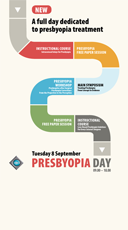Posters
(results will display both Free Papers & Poster)
Analysis of five years of experience in teaching anterior segment surgery at the Ophthalmology Department, State University Hospital of Port-au-Prince, Haiti: challenges and opportunities
Poster Details
First Author: Y.Zelenski CANADA
Co Author(s): D. Eisenmann
Abstract Details
Purpose:
This paper analyses the dynamics, strengths, weaknesses and opportunities of the Alliance, comprised of the Foundation Verein zur Unterstützung der Augenabteilung am Albert Schweitzer, Switzerland, Medical Faculty of State University Haiti and DGZ International Canada, in the formation of a national workforce for ophthalmology through motivation, engagement and the provision of specialized, university-based, teaching courses in microsurgery of anterior segment within the five year period, 2009-2014.
Setting:
Ophthalmology Department, State University Hospital of Port-au-Prince, Haiti.
Methods:
The key methodology for data collection consisted of a literature review using Pubmed, Medline and Google Scholar search engines, documentary review, national and international health databases, project reports, focus groups with participants, key informant interviews, teaching facility and participants’ observations. The review was supplemented by a web-based 2014 National Stakeholders’ Opinion Teaching/Learning Quality Improvement Survey, with 24 national program participants engaged in the complimentary teaching courses provided by the Alliance for five consecutive years. Qualitative and quantitative data analysis utilized triangulation of multiple sources of data, synthesis of information, descriptive statistical analysis and contextual interpretation of findings.
Results:
At Haiti’s growth rate of 2.2%, the population is projected to double by 2050. The national health sector fails to keep up with the growing prevalence of eye diseases due to a high professional emigration, an inadequate number of young physicians interested in ophthalmology and the burden of technologies causing increases to health care costs. Since engagement in of institutional support, the Alliance has provided country adapted technologies and skill generating training in microsurgery for 22 ophthalmologists that have resulted in a reverse of the emigration trends among young ophthalmologists and 100% employment in health industry, upon completion of medical residency.
Conclusions:
The analysis demonstrates that Alliance contributed to improving the quality of surgical outcomes, standardization of protocols and practices, and patient safety. Despite this progress, quality of surgical outcomes remains an area of mutual concern. Future collaboration should strengthen national standards and guidelines through professional regulation and accreditation, where the Alliance has to play the role of catalyst in the creation of an optimum teaching environment for stimulating technology-based innovation, teaching practice and the promotion of the role of national institutions in a process of sustainable development.
Financial Disclosure:
NONE





